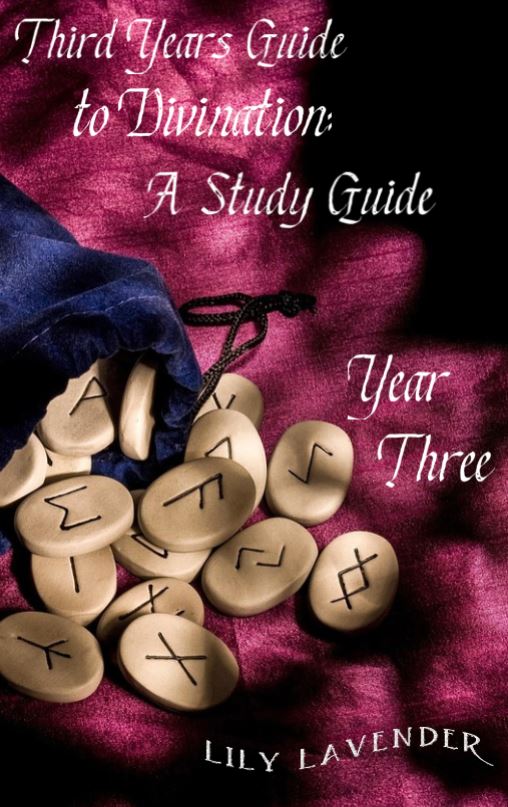Third Years Guide to Ace Divination: A Study Guide
By Lily Lavender
This book is intended for all who need a quick study reference guide for DIV-301. It has a glossary of terms & its appropriate meanings for the entire course. Each chapter is based on a lesson; where it won't go into grave detail, but will give you the necessary components to study for upcoming tests & assignments. This does not include mid-term & final exams. All detailed information about each topic is in your official lessons with the Professor. DO NOT COPY AS IT IS PLAGIARISM!
Last Updated
May 17, 2025
Chapters
10
Reads
47
Lesson Three Study Guide
Chapter 4
The History of Runic Scripts & Base Materials
Runes were used since 200 CE & were used to bewitch amulets, rings, stones, talismans, & fibula to harness magic & make it stronger. The Elder Futhark was commonly used from 200 to today. Both the Anglo-Saxon Futhork & the Younger Futhark do not have magical properties, as it is not used in divination. Runes are supposed to cause magic, whereas in divination they are only vessels. Any type of material that the runes are inscribed on must be completely natural. If you do not, your reading will be inaccurate. Metal was only reserved for weapons. To inscribe a rune, use paint, burn it, cut into it, or scratch it. Do not use synthetic paint. You can sand it or wax it to make it smooth, but most do not use this method.
Blood Magic & Storing
For metal weapons to be used as runic material, it must be sealed by blood. This practice is used on non-natural materials. The blood of which should be used is your own. Apply the blood all over the rune or use the blood to paint the rune & let it dry fully before using. Store runes in a little bag of natural fibers. Cloth, hide, & leather are commonly used. If stored in boxes, it must be of wood; not the compressed sawdust type of wood. Most do not use boxes as storage because many theories that the runes need to be able to breathe & that the box can interfere with the magic of the runes. By crafting runes by hand, they are better suited vessels to channel your Inner Eye.
Fun Facts
⊱ Natural rune materials consist of bones, clay, stones, & twigs.
⊱ Using blood from another that is taken by force is forbidden.
⊱ Avoid spellcasting while handling runes as it can overload the runes & cause a burn out on their magical property.
⊱ As years past, the Elder Futhark became the Anglo-Saxon Futhork & the Younger Futhark.



